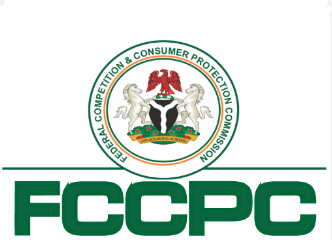The Federal Competition and Consumer Protection Commission (FCCPC), says illegal Digital Money Lenders (DMLs) popularly known as loan apps are using wallets on the platforms of Payment Solution Service Providers (PSSP) to execute their transactions, thereby making it difficult for the agency to stop their despite its efforts.
This revelation comes days after the Nigeria Interbank Settlement System Plc (NIBSS) directed Nigerian banks to disengage all non-deposit-taking financial entities from their Nigerian Interbank Payment (NIP) outward fund transfer channels. The PSSPs are also affected by this directive.
Executive Vice Chairman/Chief Executive Officer of FCCPC who disclosed this in a statement stated that while the DMLs operate online, they move their transactions to PSSPs wallets once their bank accounts are frozen.
While noting that the Commission continues to chase the illegal DMLs, the FCCPC CEO in a post on X said: “No way to stop DMLs operating actually. They spring up daily in different places on the internet using APKs and when bank accounts are frozen, they operate by wallets through PSSPs. We are chasing every day, but won’t ever stop them all. Nothing to do with bribes please.”
READ ALSO: FCCPC delists two registered loan apps using multiple channels to harass borrowers
According to the Central Bank of Nigeria (CBN), there are a total of 75 companies currently licensed as PSSP. These include Flutterwave, Appzone, Eyowo Integrated Payments Limited, and Fincra Technologies Limited, among others.
Despite the FCCPC’s efforts to legalize the operations of the loan apps through its registration framework, hundreds of digital lenders are still operating illegally in the country. And according to the Commission’s CEO, it is impossible to ban them.
“The call for outright banning is ill-advised, and in most cases supported by former victims which is understandable, but insufficient for policymaking. Under an administration whose desire and focus is to expand prosperity and reach the least in society, reduce poverty, and empower the vulnerable, the mandate we as regulators must embrace is the hard work and road to accomplish that, not the supposedly easy approach of blanket bans and grandstanding.
“The advocacy and campaign for an outright ban, while understandable, is simplistic and presents no solution. For a business that can evade regulatory interfaces including operating entirely offshore, and possessing the versatility to evolve, rebrand, relaunch, rebirth, or relocate on the internet and needing no physical location, a ban is at best only a pronouncement, and may very well amount to nothing much more than that.”

 Business1 week ago
Business1 week ago
 Football1 week ago
Football1 week ago
 Entertainment6 days ago
Entertainment6 days ago
 Latest1 week ago
Latest1 week ago
 Entertainment3 days ago
Entertainment3 days ago
 Business1 week ago
Business1 week ago
 Latest1 week ago
Latest1 week ago
 Comments and Issues6 days ago
Comments and Issues6 days ago













